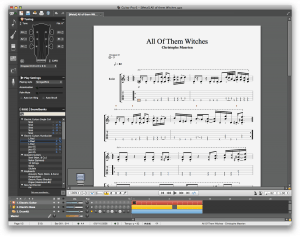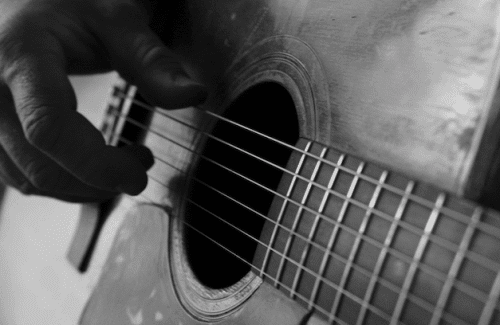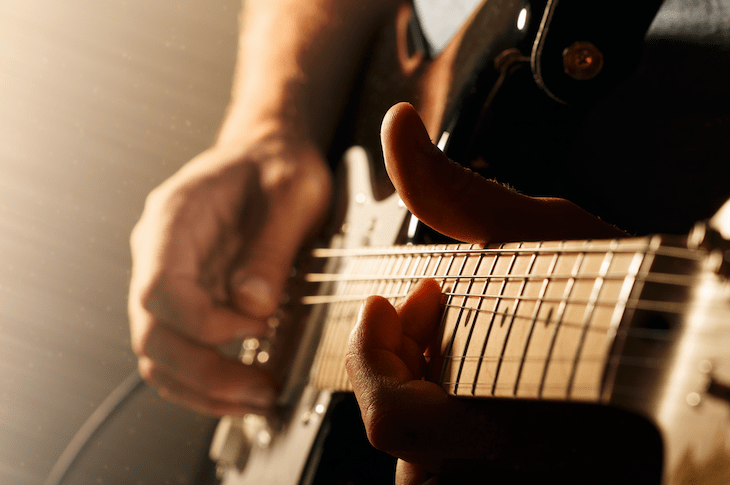So you’ve registered for the concert and you’ve been placed in a band with other musos, and you’ve been given the song that you’re going to play on the day. Now all you have to do is learn the song! Easy enough, right? Just to keep the pressure off, let’s have a look at some ways that you can streamline how you go about learning your showcase song.
-
Don’t panic
Sounds pretty easy, right? Now that you’ve got a deadline, it can be easy to get yourself stressed out if your song isn’t coming along as quickly as you might like. If you’re really stressing, just talk to your coach about it – they’ll be able to help you with some more strategies, or if it’s really necessary, to simplify your part. You’ll have opportunities to rehearse your song with the rest of your band, too, so you don’t need to worry about that. -
Don’t waste time
While it’s important not to get stressed out, it’s also very important that you don’t become complacent. Even though you have several weeks, that’s no reason not to start practicing diligently right now. By wasting time and putting off the hard work on your concert song, you’re only setting yourself up for an unpleasant rush later on. The sooner you get the song sounding good, the sooner you can work on playing it with others and playing it on stage. -
Know what you need to do
If your coach has already outlined exactly what you’re going to be playing, whether that’s chords, lead, or a combination, then make sure that you stick to that. There’s no point in spending time learning all the various parts of a song if you’ll only be playing one of them on the day. Focus on learning your part, and your part only. If you aren’t sure exactly what that is, then you should ask your coach at the start of your next lesson. -
Memorise the song
You won’t be able to take a chord chart or anything similar on stage with you, so start weaning yourself off it as soon as you can. Look for patterns and repeated sections that will make it easier to remember without a visual aid. You’ll also find that harder sections are much easier to play when you don’t have to stop and look at the notation. Make sure to actively listen to the song as often as you can tolerate. -
Make sure that you’re available for the upcoming rehearsals
UPDATE: Rehearsal schedule is here, please ensure you contact the office to confirm your attendance (or non attendance!)
Try not to overbook the last few weekends before the concert. You will get the chance to run through your song with (hopefully) the entire band in the large group room at the Indooroopilly studio during one of the last weekends before the concert. It’s extremely useful and a great boost in your pre-show confidence to have had a rehearsal with all of your band members. The rehearsal is a great way to get a taste for what it’s going to sound like with your bandmates, and also is a great way to find out what you need to work on for the last couple of weeks. You should make every effort to attend. Unfortunately due to the number of people involved we cannot meet requests to arrange special rehearsal times. -
Rehearse more
There is another opportunity for some more rehearsal time that is somewhat unique to The Guitar Gym and Sono School of Music. In the week or two before the concert, we encourage performers to attend each other’s lessons to squeeze in some more time playing the song together before they have to do it in front of friends and family. If your coach hasn’t already discussed it with you, just let them know that you’re interested and they will let you know when to come in for some extra time with your bandmates. For adult players, any rehearsal is a good opportunity to swap contact details with your band mates and organise some out-of-hours rehearsals at home. We have had several groups do this in the past, and it always leads to a well-rehearsed performance on concert day. Our band room is also available for you to use at no cost, but be sure to book through the office.
You’ve got several weeks to get your song to a good standard before you perform it in front of other students and family members, but don’t let that fool you – you’ve got work to do, and no reason not to start on it right away. The last thing that you need when you’re about to go on stage is the worry that you haven’t done everything that you could have done to be ready for the performance. If you’ve done everything on this list in addition to plenty of practice, then you will have done pretty much everything in your power to be ready to play your song at The Guitar Gym and Sono Music Performance Showcase.
If you need some tips for maximising the effectiveness of your practice, make sure to check out our other articles:
8 Tips To Better Guitar Practice












